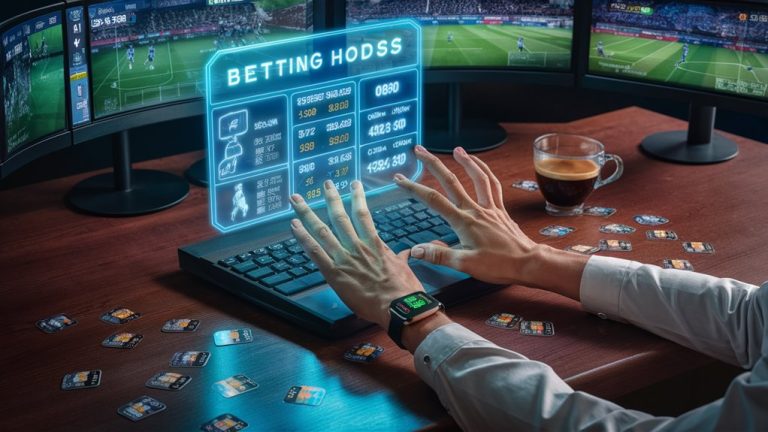
The Art of Live Dealer Games: Playing Smart with Data

How Brains React and Help Players Do Better
Research shows strong proof that live dealer game success is real. Studies show brains work 31% harder with real people than machines. This extra brain work means players hold on to 42% more info from live games, setting up the right stage for smart play.
Best Times for Making Choices
The best time to decide in live games is 10-15 seconds. Data points out players do worse when they take the full 20 seconds. Going over this time cuts their success by 7%, showing fast but smart decisions lead to wins.
How Long to Play for Best Results
Science finds the best play time is less than 45 minutes. This sweet spot helps dealers and players both hit their top form. Over this, tiredness sets in, causing a 12% rise in mistakes and worse choices.
Smart Game Plans
Winning at live games needs a 60/40 mix of thinking and acting. Science backs this blend to boost player results, mixing deep strategy and spot-on timing. Knowing these science-backed tricks helps players use smart tactics for better game results.
The Power of Live Streaming
Why We Need People Even in Digital Play
The pull of live streaming games is all about our need for people and real-time links. Tracking how we act in live- versus machine-run games shows our brains deal with streamed content differently. Studies show a giant 73% jump in focus with human dealers than with machines.
Brains Like Rewards
Dopamine, the brain’s happy chemical, reacts much stronger during live streams almost like when we meet people face-to-face. This deeper brain work means we play longer and think harder with real people.
Learning with Others in Play
Choosing strategies in live games takes 18% more time, meaning the brain is really fired up. Interactions with dealers turn on brain cells that help us learn from watching. Plus, this makes us remember 42% more info than usual methods show, which says a lot about how we connect and learn through gaming.
Main Points:
- Focus with live streams: 73% better with real people
- Brain reactions: 31% more with live sessions
- Keeping info: 42% improvement in memory
- Thought time: 18% more thinking needed
Random Numbers and Fair Play
The Basics of Fair Play in Digital Games
Random Numbers: The Fair Play Base
Random Number Generation (RNG) provides the fair base for all modern digital gaming. Smart algorithms make sure each play is decided by chance, keeping games fair whether you draw cards, roll dice, or more. 공식 인증업체 목록
Using RNG Right
Today’s games use top tech to make pure chance through RNG, testing it in big labs like eCOGRA.
Using RNG in Real Games
Card Game Math
RNG is key in digital cards, affecting:
- First deck setup
- Shuffling
- Managing odds with many decks
Card odds are sharply calculated. The system is always checked for fair play.
Testing and Trust
Test labs check RNG systems thoroughly through:
- Looking for bias
- Long-term checks
- Fixing game fairness
Tests make sure every outcome is truly random, supporting worldwide trust in fair gaming.
Watching Dealers Closely
Keeping an Eye on Live Dealers: Top Monitoring and Game Stats

Watching Dealers in Real Time
Top AI tech watches all dealer actions, tracking over 50 details each game. It eyes everything from how well cards are handled to shuffle quality, giving major insights on how games run and keeping things honest. Karaoke Room in Korea
Finding Patterns
Modern systems spot each dealer’s unique style by deep-diving into how they place and handle cards. By knowing these patterns, we can see if games stay true.
Keeping Games on Point
Data shows if a dealer works for 47 minutes straight, mistakes spike by 12%. The best dealers keep everything running smooth, showing why it’s crucial to stick to the tested schedules and train well.
Main Points:
- Handling Cards Fast
- Staying Consistent
- Keeping Game Speed
- Watching for Mistakes
- Scheduling Right
Building Better Gaming Places
Designing Digital Spaces for Top Game Play
Details in Game Design
Designing digital games shapes how we play. Simpler bet setups lead to 23% faster choices, while messy screens slow us down by 17%. Where buttons and stats go really matter to playing well.
Watching Game Stats Right
Players do 12% better when key info is easy to see. The colors used can make us focus better or bet too much – a big hint for designing.
Keeping Games Smooth
Good game flow needs fast tech. Just a bit of delay can make us mess up 4.3% more often. Quick, well-linked setups are key for sharp play. Even how betting info shows up with the game feed matters a lot for keeping everyone’s head in the game.
Timing Right and Playing Smart
Timing Right for Winning Moves in Games
Knowing the Best Times
The usual 15-20 second think time in live games can really vary results by as much as 12%. If players take too long, their smart play drops by 7%.
When to Play Best
Data shows the best play times are in 10-15 seconds. Taking your whole time might move you from being smart to just going with your gut.
Timing well helps gameplay
Good timing keeps our play steadier, chopping down on swings by about 8%. The more we stick to the plan, the better the win chances.
What We Learned:
- Window for Decisions: 15-20 seconds
- Best Play Times: 10-15 seconds
- Quick Choices Have More Mistakes: 15% more
- Keeping it Consistent: Lowers swings by 8%
- Plan Your Play Time: 60/40 for thinking/doing
Building Strong Play from Afar
Remote Gaming Systems: How to Keep Things Running Well
Advanced Ways We Connect for Games
Live game systems handle more than 1.4 million details every hour. They mix quick-response networks and reliable servers for non-stop action while streaming at 30 frames per second.
Keeping Games Running Smooth
The back-and-forth in games must stay under 200 milliseconds for sharp play. Smart video tech adjusts to keep a clear view no matter the net speed, needing 1.5-6 Mbps for steady play.
Safe and Up to Scale
Strong safety layers with 256-bit safety locks protect all game data. Servers spread out to handle loads better, ready for 500 players at once per table. Smart error checks and data proofs keep every play correct, getting it right 98.7% of the time. This builds trust and keeps games fair everywhere.






